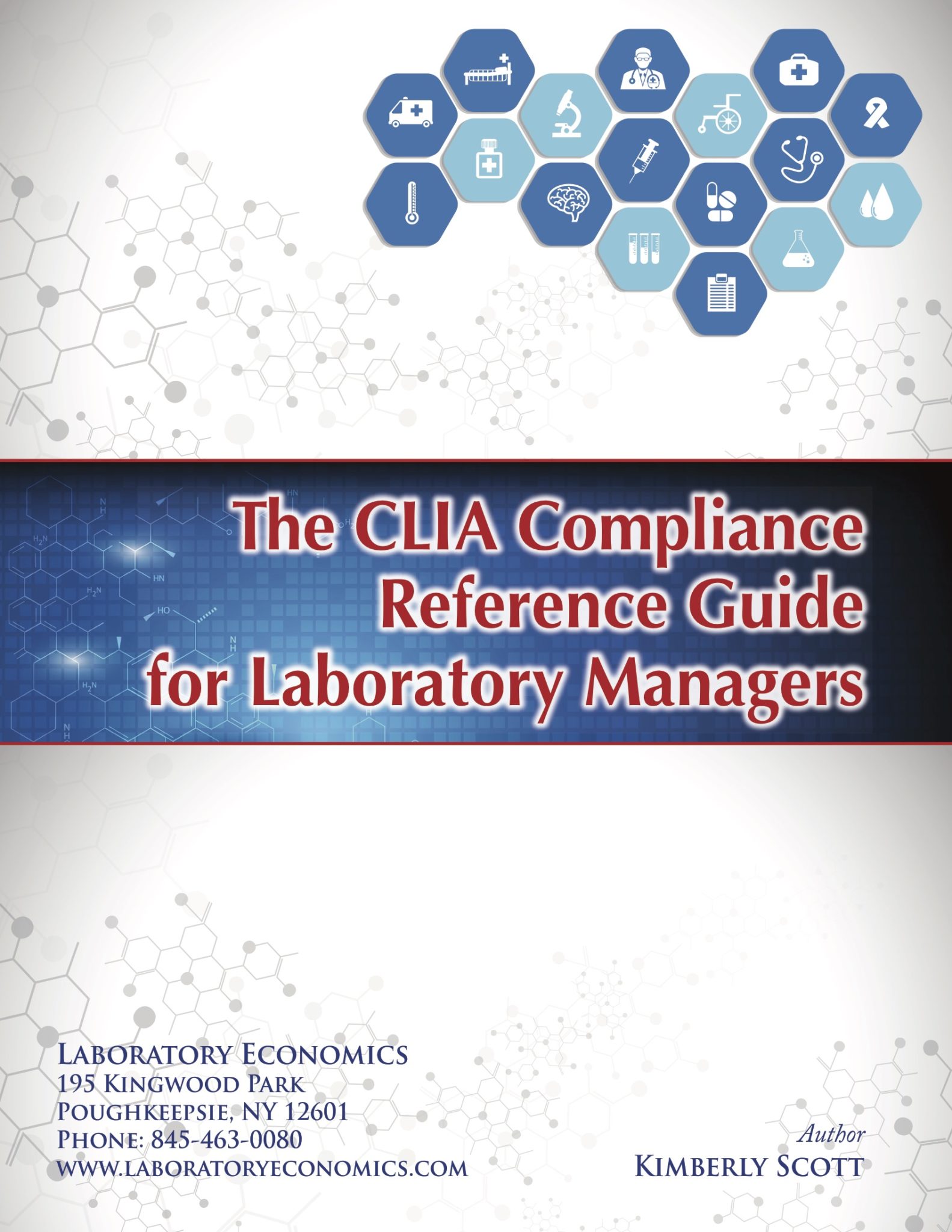
The CLIA Compliance Reference Guide for Laboratory Managers
$395.00
$395.00Read more
This reference guide is chock full of useful CLIA information, from the basics of becoming a CLIA-certified laboratory to specific information about how tests are regulated under CLIA, how to develop an Individualized Quality Control Plan (IQCP), what to expect during a CLIA inspection, and what sanctions can be imposed for non-compliance with CLIA requirements.
Newsletter Subscribers SAVE $100
COUPON CODE: CRCLM Discount applied at Checkout
This 80+ page guide provides useful tips for maintaining CLIA compliance, including:
- How to perform personnel competency assessments;
- Strategies for performing risk assessments under IQCP; and
- CLIA requirements on retention of records
Plus, you get over 15 pages of regional and state CLIA contacts, along with key CLIA definitions and contact information for approved accreditation organizations. Failure to meet CLIA requirements can result in sanctions ranging from directed plans of correction to substantial civil money penalties (big $$$!) to loss of your CLIA license. Don’t let this happen to you! Order your copy of The CLIA Compliance Reference Guide for Laboratory Managers today.
TABLE OF CONTENTS
1. CLIA Basics
- Types of CLIA Certificates
- Specialty/Subspecialty Information for Approved
- Accreditation Organizations
- Applying for a CLIA Certificate
- Frequently Asked Questions
- CLIA Registered Laboratories
2. Regulation by Test Complexity
- Waived Tests
- Nonwaived Tests
- Provider-Performed Microscopy Procedures
- Moderate- and High-Complexity Tests
- Why Is Test Complexity Important?
3. Individualized Quality Control Plan • IQCP Risk Assessment
- Potential Sources of Error for the Five Risk Assessment Components
- Quality Control Plan
- Quality Assessment
- Corrective Actions
4. Personnel Competency
- Who Is Responsible for Performing the Competency Assessment
- How Often Should Competency Be Performed?
- Frequently Asked Questions
5. CLIA Surveys and Inspections
- Outcome-Oriented Survey Process
- Documents That May Be Required During a Survey
- Basic Inspection Requirements
- Waived and PPM Laboratories
- Certificate of Compliance
- Accredited and CLIA-Exempt Laboratories
- Statement of Deficiencies
- Allegation of Compliance/Plan of Correction
- Top 10 CLIA Deficiencies
- Top Waived Deficiencies
6. Other Key CLIA Issues, Including EHRs and Retention of Records
- Test Requisitions and Authorizations
- Test Procedures
- Analytic Systems Records
- Performance Specifications
- Proficiency Testing Records
- Quality System Assessment Records
- Test Reports
7. CLIA Sanctions
- Ineligibility to Own or Operate
- Improper Referrals
- Injunctions
- Judicial Review
- Appeal Rights
- Laboratory Registry
Appendix 1. Key Terms
Appendix 2. Regional and State Contacts
Appendix 3. Approved Accreditation Organizations
ABOUT THE AUTHOR
 Kimberly Scott is a healthcare analyst and communications professional with more than 25 years of experience in the healthcare industry. Ms. Scott worked for more than 14 years at G2 Intelligence (formerly Washington G-2 Reports) and has served as editor of a number of publications, including National Intelligence Report, Laboratory Industry Report and G2 Compliance Report. She has also authored or contributed to a number of industry reports, including the Medicare Payment & Policy Guide for Laboratory & Pathology Services andNavigating Murky Waters: Healthcare Compliance Guide for Labs and Pathologists. Previously, Ms. Scott worked for the Business Publishers, U.S. Medicine and the Regulatory Affairs Professional Society.
Kimberly Scott is a healthcare analyst and communications professional with more than 25 years of experience in the healthcare industry. Ms. Scott worked for more than 14 years at G2 Intelligence (formerly Washington G-2 Reports) and has served as editor of a number of publications, including National Intelligence Report, Laboratory Industry Report and G2 Compliance Report. She has also authored or contributed to a number of industry reports, including the Medicare Payment & Policy Guide for Laboratory & Pathology Services andNavigating Murky Waters: Healthcare Compliance Guide for Labs and Pathologists. Previously, Ms. Scott worked for the Business Publishers, U.S. Medicine and the Regulatory Affairs Professional Society.